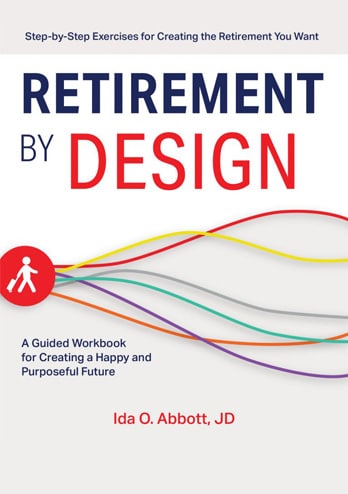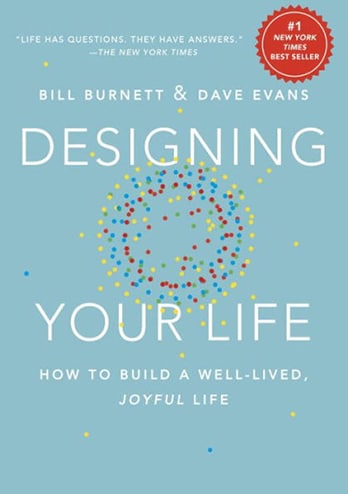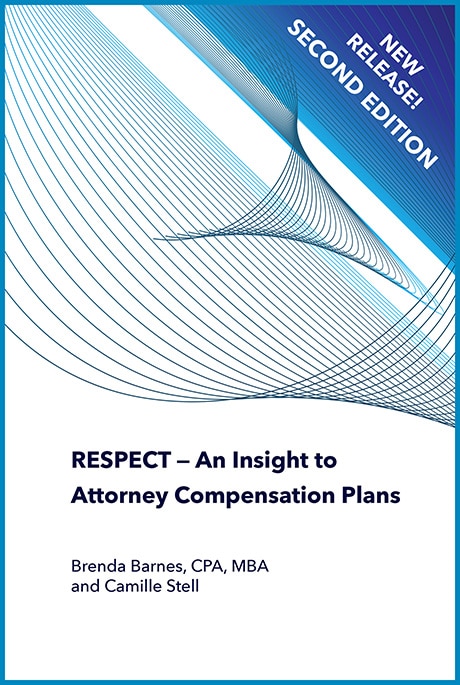For many baby boomer men, retirement can feel more like a loss than an opportunity, but there’s a positive upside to proactively planning the next chapter of your life. Practice management consultant Camille Stell offers a guide to planning life after law.
Table of contents
After decades of long hours, high-stakes negotiations and courtroom victories, many male lawyers find themselves standing on the edge of retirement and feeling anything but triumphant. In my consulting work, I see this pattern over and over — men retiring later than they planned, often with no clear idea of what comes next. It’s not due to financial necessity, but to something far more personal: fear.
The Identity Crisis: Who Am I Without My Practice?
For many lawyers, especially men, law isn’t just a career; it’s a cornerstone of identity. You’ve built your reputation, network and life rhythm around this profession. So when retirement approaches, it doesn’t just mark the end of a job. It can feel like the loss of purpose, status and structure.
Ask yourself: If you’re not a lawyer, then who are you?
This is not a rhetorical question; it’s a challenge worth embracing. Because you are more than your career, and discovering that truth can be liberating and invigorating.
Later Retirement, Sooner Regrets
I’ve spoken with countless lawyers who postponed retirement again and again. When I ask why, the answers usually involve more than money. They mention being unsure of what they’d do all day, or not feeling “done” yet. Yet when they do finally retire, many experience regret — not because they left the law too soon, but because they left it without a plan.
Waiting until burnout, a health scare or family pressure forces your hand is a dangerous strategy. Proactive retirement planning isn’t just smart, it’s a gift to yourself and those you care about.
The Myth of Endless Leisure
Many men envision retirement as an endless vacation: golf in the morning, lunch with old friends, and perhaps hobbies in the afternoon. While these activities can be enjoyable, they rarely provide lasting fulfillment. After a lifetime of intellectual challenge and purpose, leisure alone often falls short.
What men often need but rarely plan for is a sense of contribution. That could mean mentoring, teaching, community leadership or creative pursuits.
Retirement is not about winding down. It’s about redirecting your energy with intention.
The Emotional Underbelly
Let’s be honest: Many baby boomer men have not learned how to talk about fear, aging, regret or loss. But these are real emotions that accompany retirement. Ignoring them doesn’t make them go away; it just makes the transition harder.
Creating space for these conversations can be transformative, whether with a coach, a peer group or even a journal (or a yellow legal pad!). You’ve spent your life helping others navigate complex problems. You deserve that same support now.
Planning the Next Chapter of Your Life
What’s Next? Creating a Vision
What does life after law look like? That’s up to you. But here are a few questions to guide your vision:
- What activities make you feel energized and alive?
- What knowledge or wisdom do you want to pass on?
- Who do you want to spend more time with?
- What contributions do you still want to make?
- What routines or habits will support your health and joy?
Start by building a diversified “Life Portfolio,” much like your financial one. Include physical activities, intellectual challenges, creative outlets and social commitments.
Case Studies: Redefining Retirement
I’ve seen many retirement success stories. One client began teaching part-time at a local law school and found deep satisfaction mentoring the next generation. Another started writing and became a published author. A third joined a nonprofit board, applying his legal knowledge in new, meaningful ways. These weren’t spontaneous decisions. They were planned, thoughtful pivots, often started before they retired full-time.
Resources to Inspire Creativity in Planning Life After Law
If you’re ready to explore your own retirement ideas, you’ll find a wealth of excellent resources to start the process.



I recommend reading “Younger Next Year” by Chris Crowley, a retired lawyer, and Henry Lodge, M.D. Their series includes special editions for men, women, and those looking to incorporate more movement into their retirement through exercise and activity. It also offers inspiration and guidance on healthy aging and staying active.
“Retirement by Design” by Ida Abbott, J.D., provides a tailored workbook approach to transitioning out of the legal profession with purpose. Bill Burnett and Dave Evans’ best-selling book “Designing Your Life: How to Build a Well-Lived, Joyful Life” can help you reimagine your next chapter using design thinking principles.
Retirement Exploration Course
For a more immersive experience, consider the weekend retirement exploration course offered by the Osher Lifelong Learning Institute at the University of North Carolina in Asheville, an excellent opportunity to connect with others and explore what’s next. My husband and I participated in this weekend course, and we found it the perfect kickoff to designing the retirement life that each of us wanted to live and to create actionable steps to begin preparing in advance. The biggest advantage this class offered over many other retirement tools I have used is that it helped us navigate as a couple the extremely challenging and emotional conversations of retirement that include money, lifestyle, health and where to live.
Business Forums as a Retirement Planning Tool
One powerful but often overlooked tool for retirement planning is participating in business forums designed for individuals navigating professional transitions. The Wake Forest University Center for Private Business offers a forum program tailored to business owners and professionals approaching or entering retirement. Modeled after successful peer-group formats like C12 and YPO, this program emphasizes connection, purpose, and actionable planning for the next chapter. Unlike many other business forums, the Wake Forest Transition Forums focus explicitly on the unique challenges and opportunities of transitioning out of a long-held leadership role.
These groups provide a structured, confidential space to discuss questions about identity, leadership after retirement, and legacy planning. Participants gain support, accountability and fresh perspectives as they navigate both the emotional and logistical aspects of life after full-time work. Similar programs can be found at business schools and lifelong learning institutes nationwide, offering the chance to connect with peers, explore future ventures and design a thoughtful, supported retirement.
Keep in mind the next chapter isn’t just an ending, it’s your opportunity to write something new and deeply meaningful.
Image © iStockPhoto.com.

Sign up for Attorney at Work’s daily practice tips newsletter here and subscribe to our podcast, Attorney at Work Today.

RESPECT: An Insight to Attorney Compensation Plans
Newly updated with more case studies.
Do you want to know more about designing and implementing compensation systems to grow and scale your law firm? Brenda Barnes and Camille Stell have written a go-to guide on attorney compensation trends and best practices for small to midsize law firms. Available at lawofficemanagementbooks.com and Amazon.
















